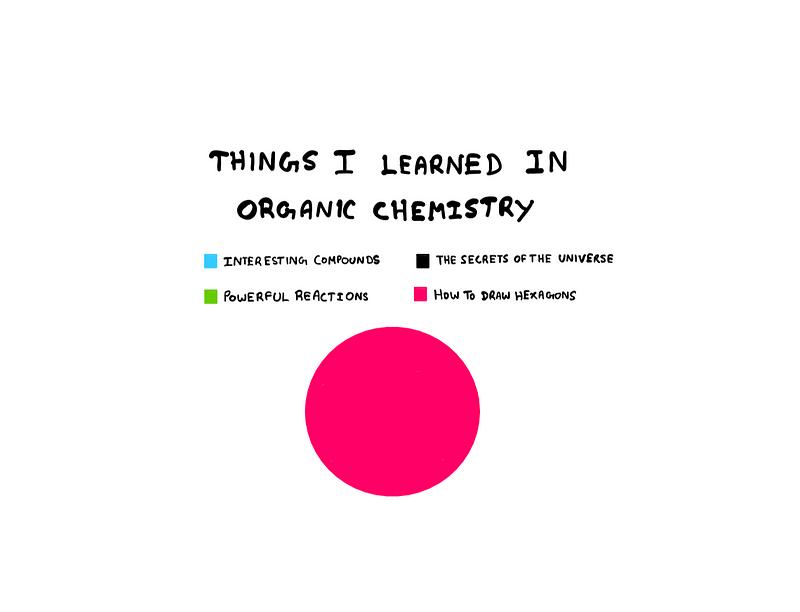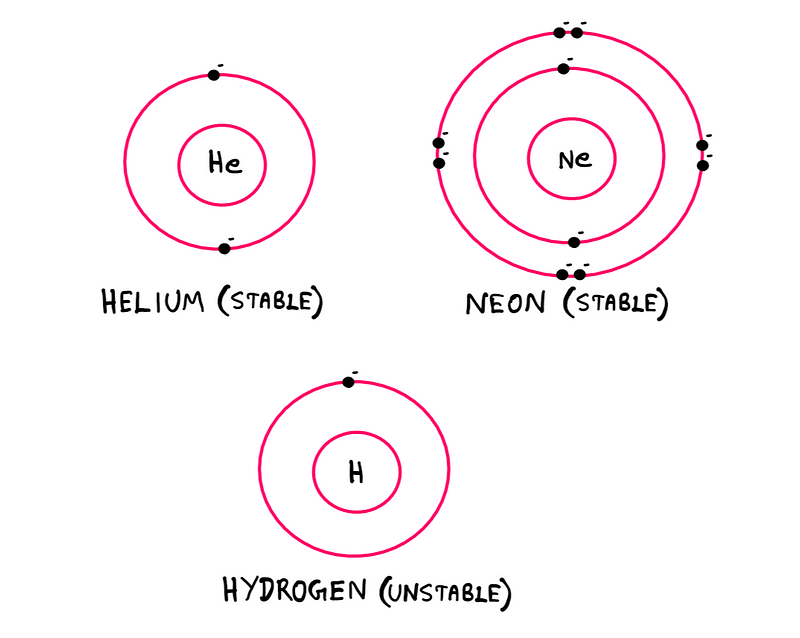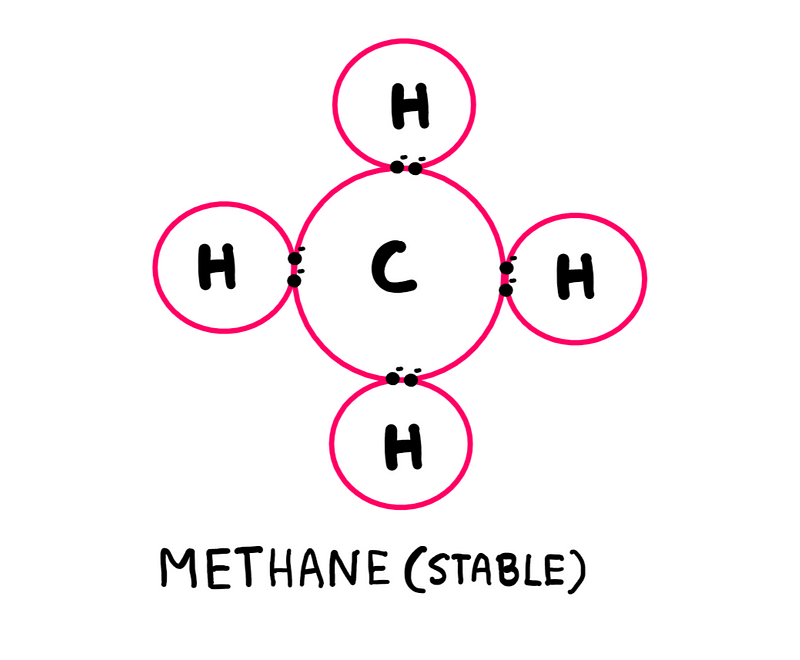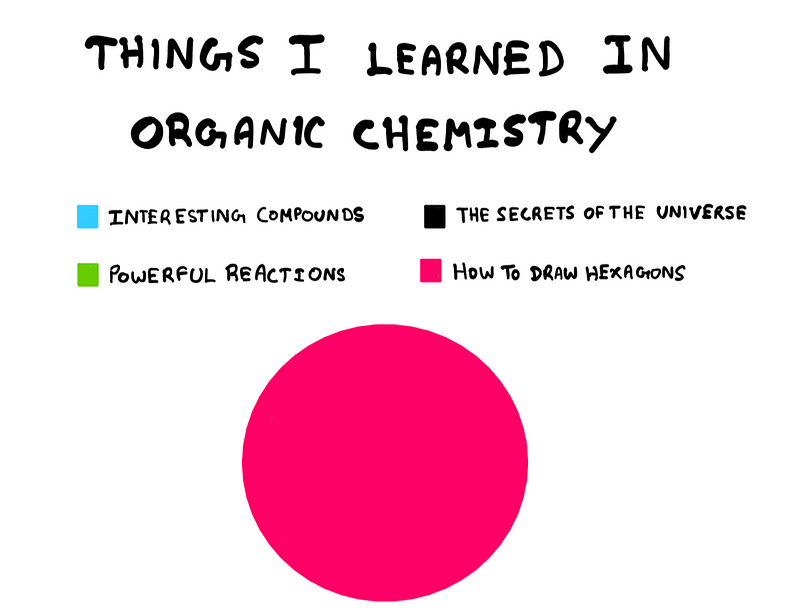From Disdain to Passion: My Transformation in Chemistry
Written on
Chapter 1: The Early Days of Chemistry
My initial experiences with chemistry were filled with enthusiasm that quickly morphed into bewilderment. As a curious student, I was eager to dive into the subject. My father, a chemistry graduate, sparked my interest further.
To fuel my excitement, my parents gifted me a vibrant, cartoonish chemistry textbook a month before school started, and I flipped through its pages with great anticipation. However, fast forward a few months, and that curiosity had diminished, replaced by confusion and disappointment. What had gone wrong?
Section 1.1: A Comparison of Sciences
After we were introduced to four new scientific disciplines—botany, zoology, physics, and chemistry—students quickly grouped botany and zoology as sister subjects, while physics and chemistry were seen as kin. Surprisingly, I found physics intuitive; the visuals made sense, and I could easily grasp the concepts.
In contrast, chemistry presented a starkly different picture. The foundational principles seemed to overlap with physics, which I understood well. However, as I delved deeper, things became bleak.
I struggled to comprehend the logic, if any existed at all. Why did protons and electrons behave the way they did? What caused chemical reactions to occur? My mind was flooded with questions but starved for answers.
Subsection 1.1.1: The Turning Point

If I had to pinpoint the moment my dislike for chemistry began, it would be my inability to grasp chemical reactions. Despite my efforts, I couldn't understand their mechanisms or predict how various elements would interact. This lack of understanding stripped chemistry of its essence for me.
When I sought my father's help, he advised me to memorize basic reactions until it clicked. Regrettably, this strategy proved futile, and I felt like I had missed my chance to engage with chemistry meaningfully. By the eleventh grade, I had resolved to minimize my involvement with the subject, doing only what was necessary to pass.
Chapter 2: Chemistry's Redemption
In a recent reading of Brian Greene’s work, I stumbled upon a section that elucidated chemistry's fundamentals in an accessible way. This time, I could follow the reasoning behind the concepts, and everything just "clicked."
I was elated to discover that there is indeed logic in chemistry, which reignited my interest in the subject!
Section 2.1: Understanding Chemical Reactions
What shifted my perspective? For one, I learned that nature inherently seeks stability, striving to maintain equilibrium. Every elemental atom either exists in a stable state or is working towards one.
What makes some atoms more stable than others? It all boils down to electron counts. Each atom has a nucleus surrounded by electron layers, each with a specific capacity for electrons.
For instance, the first layer can hold up to two electrons, while the second can accommodate a maximum of eight.

When an atom's layers are filled to capacity or entirely empty, it achieves stability. However, if any layer is partially filled, instability ensues.
What do these unstable atoms do? They seek stability through trading or sharing electrons with other atoms, forming stable compounds. This process is what we refer to as a "chemical reaction."

Section 2.2: Moving Forward
The more I reflect on chemistry, the more I realize it parallels physics. Ultimately, science is science, and the route you take to comprehend it is irrelevant.
Part of me wishes I had this perspective as a child, but I wouldn't alter my past if given the chance. My initial struggle with chemistry has shaped who I am today.
What matters most is my newfound passion for chemistry and my determination to learn what I missed in the past.

The second video, "Lessons in Chemistry: Clumsy, Frustrating, Hard to Hate," offers a humorous yet insightful take on the subject, illustrating the complexities of chemistry in a relatable manner.